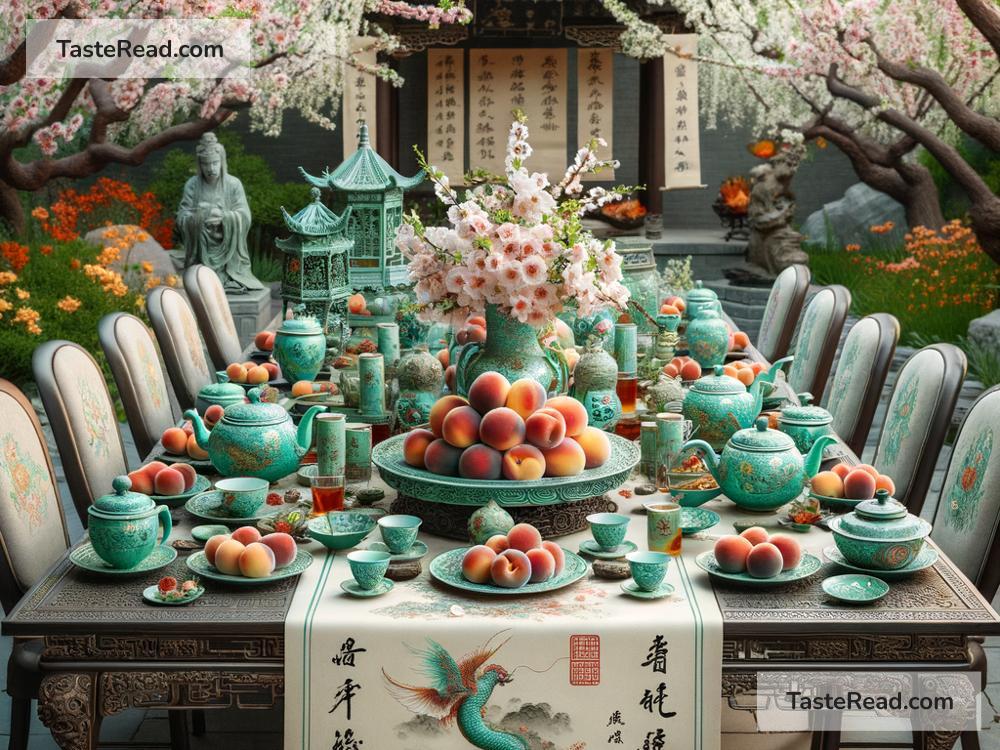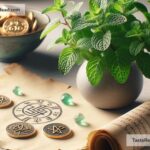The Mythical Connection Between Peaches and Immortality
Throughout history, humans have been fascinated with the idea of living forever. Many cultures around the world have created myths and stories about immortality, often linking it to special objects like magical fruits or elixirs. One famous example is the connection between peaches and immortality found in Chinese mythology. In these ancient tales, peaches are not just ordinary fruits—they are symbols of eternal life, wisdom, and divine power.
In this blog, let’s explore the mythical connection between peaches and immortality, uncover the fascinating stories behind them, and see how these legends continue to inspire people even today.
The Magical Peaches of Chinese Mythology
The idea of peaches representing immortality comes from ancient Chinese folklore, particularly the tales surrounding the Peaches of Immortality. These mythical peaches were said to grow in the heavenly garden of Xi Wangmu, the Queen Mother of the West, an important goddess in Chinese mythology. Xi Wangmu was a powerful figure who ruled over immortality, healing, and the forces of nature. Her magical peach orchard was one of her most prized possessions.
According to legend, the peaches in Xi Wangmu’s garden were not like ordinary peaches that grow on Earth. These divine fruits had the ability to grant immortality to anyone who ate them. However, they weren’t easy to obtain—these peaches only ripened once every 3,000 years. This rarity added to the air of mystery and wonder surrounding the magical fruits.
Whenever the peaches ripened, Xi Wangmu would host a grand banquet in heaven called the Feast of Peaches. The gods, immortals, and heavenly beings were invited to enjoy the fruits and celebrate their eternal existence. Eating the Peaches of Immortality not only granted everlasting life but also enhanced divine powers and wisdom. For mortals, these mythical fruits became a symbol of ultimate salvation and a connection to a higher realm.
Peaches in the Story of Sun Wukong
One of the most famous stories involving the Peaches of Immortality can be found in the classic Chinese novel Journey to the West. This epic tale is full of action, adventure, and mythical creatures, and one of its central characters is Sun Wukong, also known as the Monkey King. Sun Wukong is mischievous, clever, and ambitious, constantly seeking ways to become more powerful or immortal.
In one part of the story, Sun Wukong sneaks into Xi Wangmu’s heavenly peach garden and discovers the magical fruits. Unable to resist their allure, he eats the peaches without permission. This act of stealing the peaches angers many of the heavenly beings and creates chaos in the heavens. Sun Wukong’s boldness and greed for immortality highlight humanity’s eternal longing for eternal life—and the consequences of pursuing it recklessly.
While the Monkey King’s actions are comical and entertaining, they also show the symbolic significance of peaches in Chinese culture. These fruits are sacred, rare, and connected to divine authority, and tampering with them is seen as a violation of cosmic order.
Why Peaches Represent Immortality
So, why were peaches chosen as the mystical fruit of immortality in Chinese mythology? There are several reasons.
First, peaches have been a popular fruit in China for thousands of years. They symbolize health, longevity, and prosperity and are often associated with celebrations like weddings and birthdays. Their round shape and soft pink color are seen as symbols of beauty and harmony.
Second, peaches grow on trees that can live for a very long time, which gives them an association with endurance and longevity. The process of their blossoms turning into ripe fruits mirrors the cycle of life, making them a powerful metaphor for renewal, rebirth, and eternal life.
Lastly, in ancient Chinese art and literature, peaches were often depicted alongside immortals, gods, and heavenly landscapes. This imagery reinforced their mythical status as something magical and divine.
Modern Influence of the Peach Myth
Even in modern times, the mythical connection between peaches and immortality continues to inspire Chinese culture and traditions. Peaches are often featured in art, literature, and folklore celebrating longevity and good health. For example, you might find peaches carved into jade, painted onto porcelain dishes, or included in festive decorations.
In addition, Xi Wangmu and her Peaches of Immortality appear in pop culture, including movies, cartoons, and novels, showcasing the enduring appeal of these myths. Beyond China, the idea of magical fruits that grant immortality can be seen in many other stories worldwide, highlighting a universal human desire for eternal life and youth.
What Can We Learn From These Myths?
The tales of the Peaches of Immortality remind us that humans have always sought ways to transcend the limits of mortality and connect to something greater than themselves. While actual immortality may remain a fantasy, the myths teach us to cherish life’s beauty, appreciate the wisdom gained through experience, and treasure the time we have.
And perhaps a juicy peach can remind us not only of the sweetness of life but also of the rich stories that have shaped cultures for generations.
In the end, whether or not peaches can really make us live forever, their role in mythology shows us how food, nature, and storytelling can intertwine to create something magical. The next time you bite into a peach, take a moment to wonder: what would it feel like to taste the fruit of eternity?


